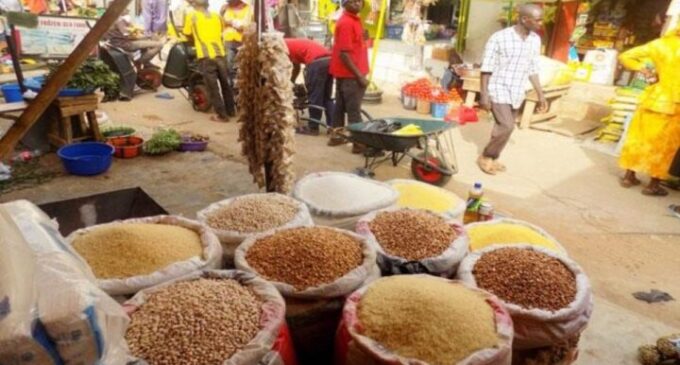FAO: Global food import bill to hit all-time high in 2021 — 14% increase from 2020

The Food and Agricultural Organisation (FAO) says the global food trade is poised to hit an all-time record in both volume and value terms in 2021.
FAO disclosed this in its latest food outlook report released on Thursday.
The food outlook offers reviews of market supply and demand trends for the world’s most traded food commodities, namely, cereals, oil crops, meat, dairy, fish and sugar.
It also looks at trends in futures markets and shipping costs for food commodities.
FAO, in the report, predicted that the global food import bill could reach an all-time high in 2021 and surpass $1.75 trillion, marking a 14 percent increase from the year 2020 and 12 percent higher than the earlier forecast in June 2021.
“Higher international prices and freight rates combine to propel the cost of importing food to USD 1.75 trillion in 2021,” the report reads.
The report noted that while the global food trade has shown remarkable resilience to disruptions throughout the COVID-19 pandemic, rapidly rising prices of food commodities and energy pose significant challenges for poorer countries and consumers, who spend large shares of their incomes on necessities.
“Developing regions account for 40 per cent of the total and their aggregate food import bill is expected to rise by 20 percent compared to 2020,” the report adds.
“Even faster growth is expected for Low-Income Food Deficit Countries, due to higher costs more than higher food import volumes.
“Developing regions are facing sharp increases in the prices of basic staples such as cereals, animal fats, vegetable oils and oilseeds, while high-value foods, such as fruits and vegetables, fishery products and beverages are driving the bulk of the increases for developed regions.”
According to the report, world output prospects for major cereals remain robust, with record harvests expected for maize and rice.
It added that cereals for consumption, and animal feed, should grow even faster.
To examine the impacts of rising input costs on food prices, FAO said its experts constructed a new tool called Global Input Price Index (GIPI).
According to the report, the new GIPI has moved in a synchronous manner with the Food Price Index (FFPI) since 2005, which means that higher input costs translate into higher food prices.
The report noted that in 53 countries, households spent more than 60 percent of their income on necessities such as food, fuel, water and housing.
FAO warned that rising food and fuel prices can have a highly regressive impact on poor consumers and urges particular “vigilance” in this regard.















There are no comments at the moment, do you want to add one?
Write a comment